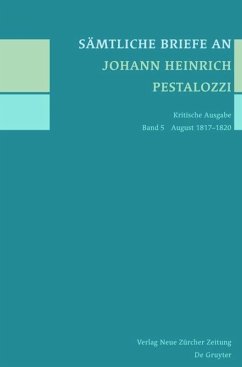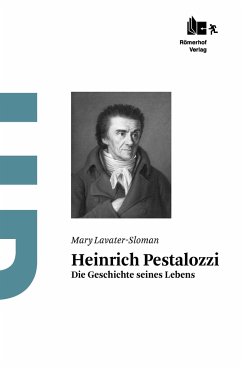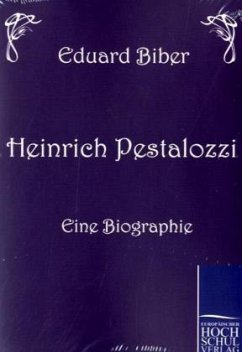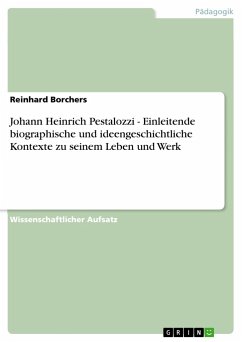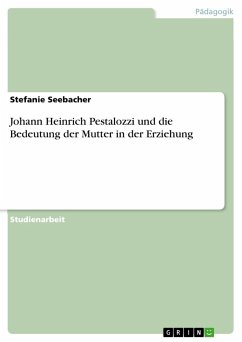Nicht lieferbar
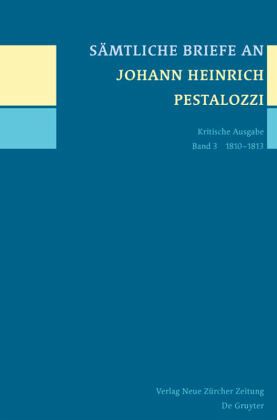
1810-1813 / Sämtliche Briefe an Johann Heinrich Pestalozzi Band 3
Kritische Ausgabe
Herausgegeben: Horlacher, Rebekka; Horlacher, Rebekka; Tröhler, Daniel; Tröhler, Daniel
Versandkostenfrei!
Nicht lieferbar
The third volume of letters to Pestalozzi covers the years 1810 to 1813 and contains over 600 letters. They show how Pestalozzi's methods awakened interest in the different countries of Europe (Prussia, Russia, Italy, England). They also give insight into the first large crises within the organization of the Institute and show how high the demand was for places for pupils and for teacher training places, both from Switzerland and from other countries. In addition, staff members who were close to Pestalozzi report in long letters about their experiences with the method in foreign countries.
Der dritte Band der Briefe an Pestalozzi umfasst die Jahre 1810 bis 1813 und enthält über 600 Briefe. Sie zeigen, wie Pestalozzis Methode in den verschiedenen Staaten Europas (Preussen, Russland, Italien, England) Interesse erregt, geben Einblick in die ersten grösseren Krisen innerhalb der Organisation des Instituts, und sie machen deutlich, wie hoch die Nachfrage nach Ausbildungsplätzen für Schüler und Lehrer aus dem In- und Ausland war. Zudem berichten enge Mitarbeiter Pestalozzis in langen Briefen von ihren Erfahrungen mit der Methode im Ausland.
In der Schweiz kann der Titel über die Neue Zürcher Zeitung bezogen werden.
In der Schweiz kann der Titel über die Neue Zürcher Zeitung bezogen werden.




